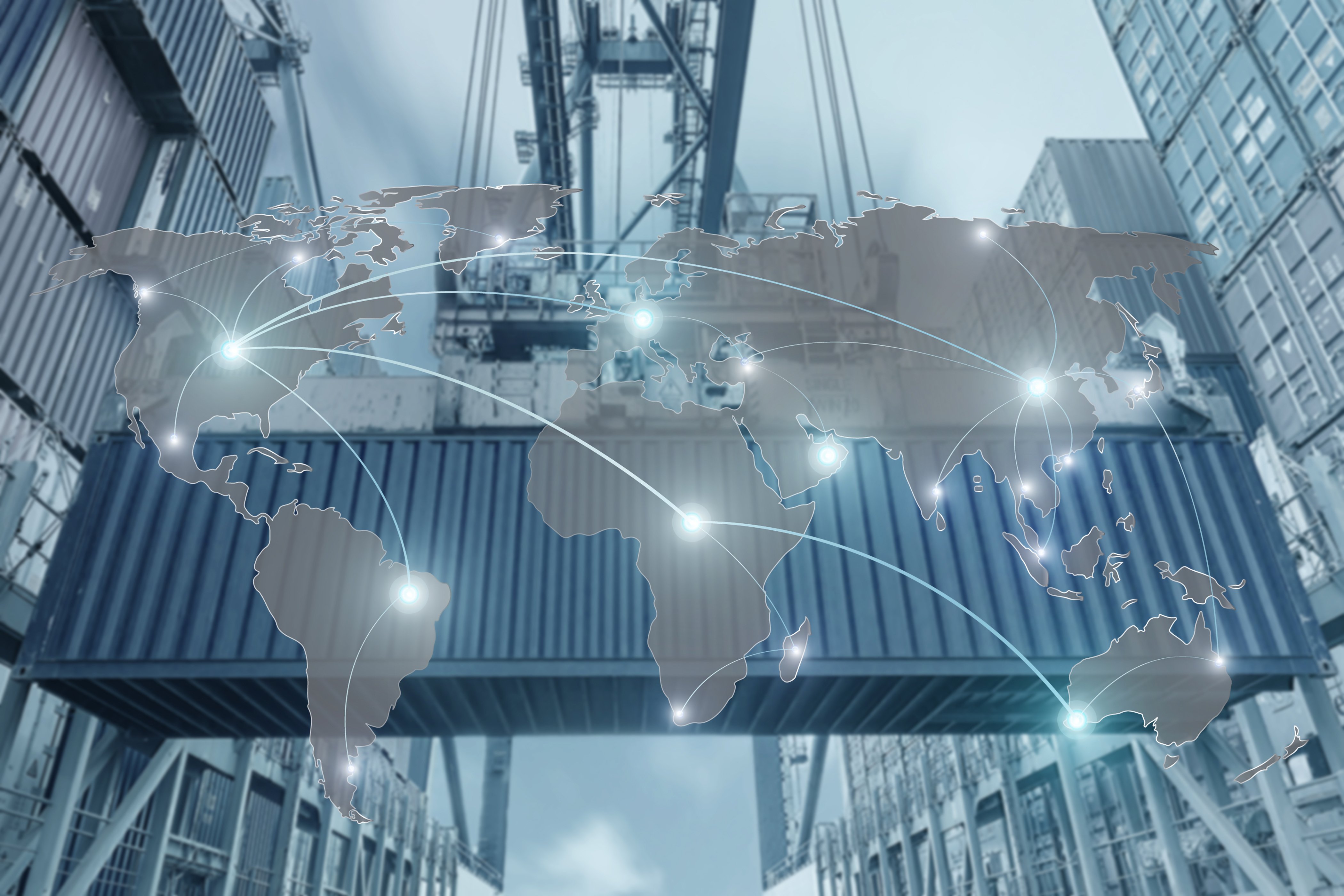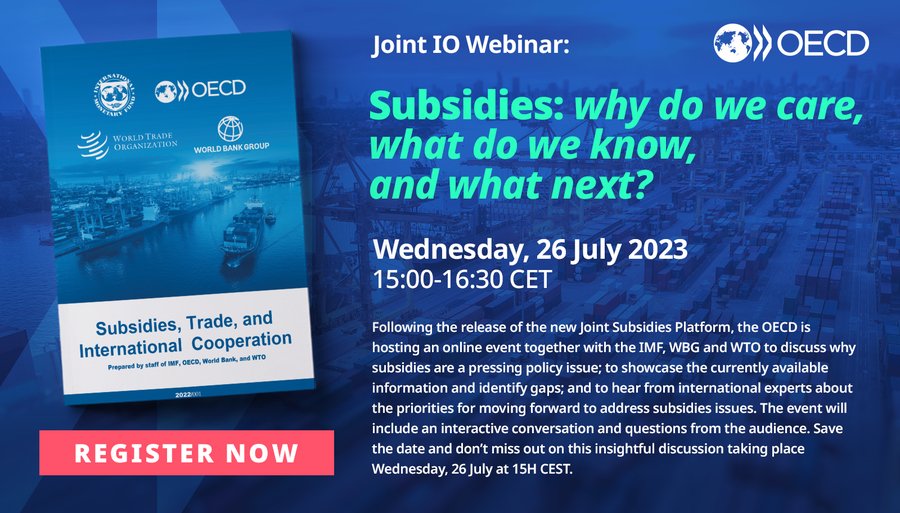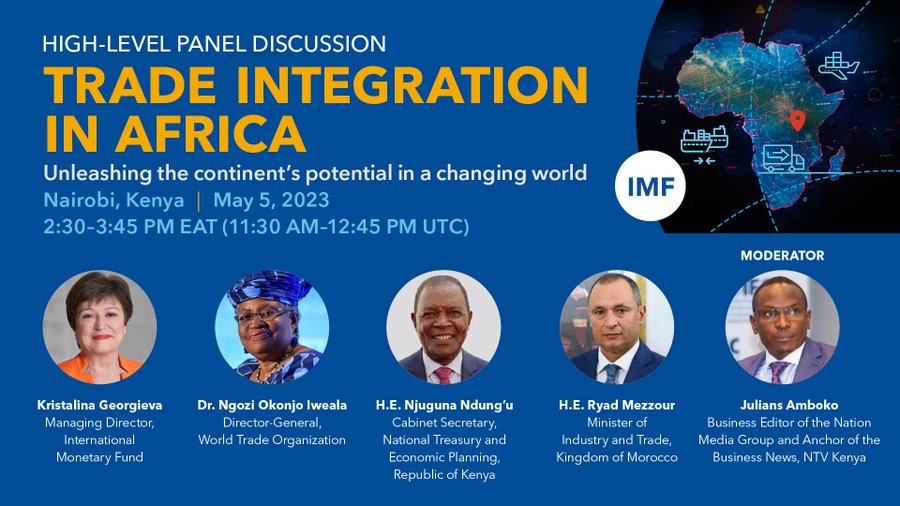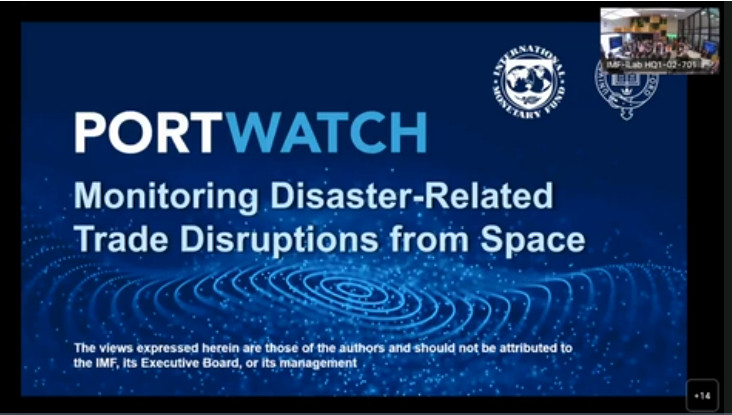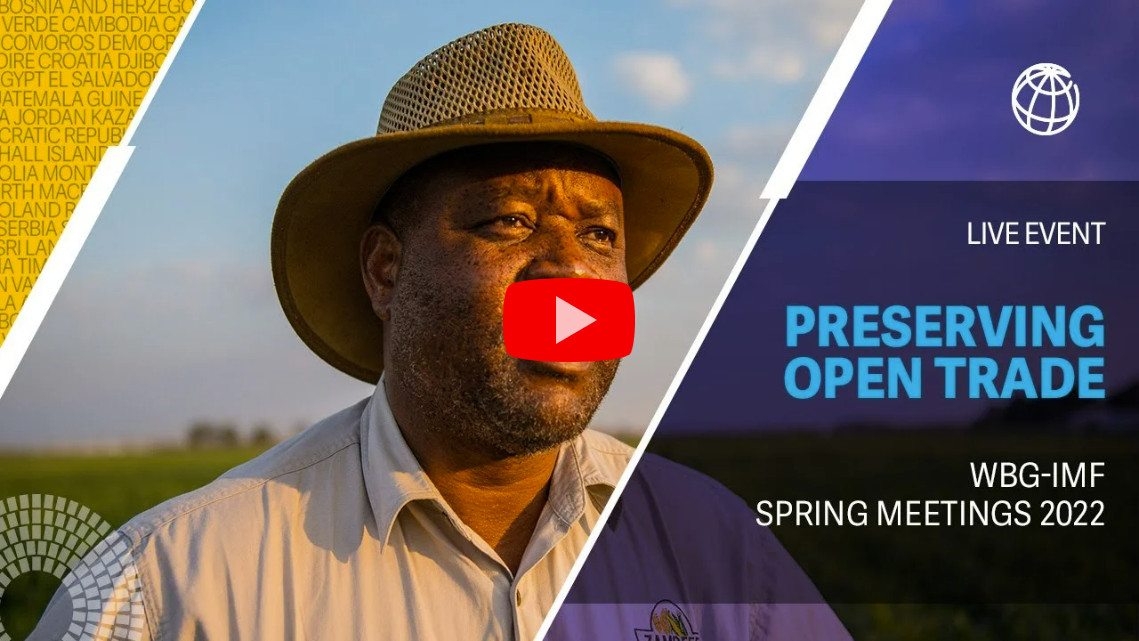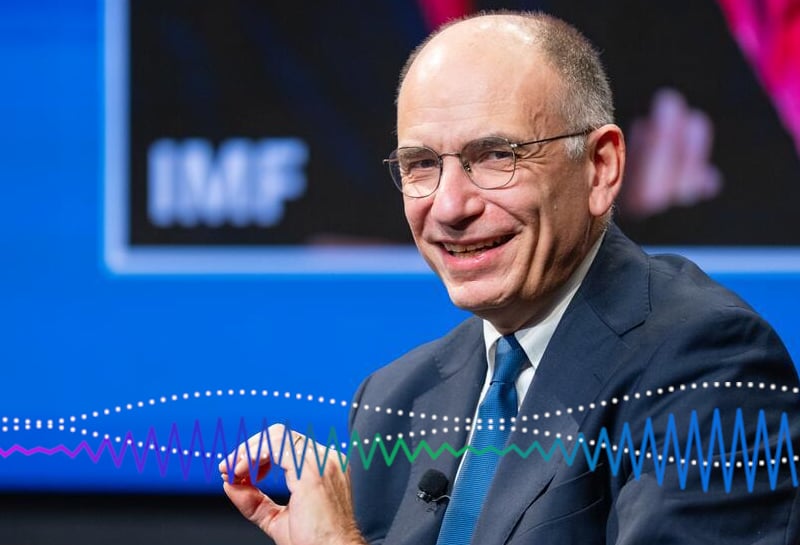Trade

Open, stable, and transparent trade policies are key for economic growth and resilience and for addressing key global challenges, including climate change, food security, and underdevelopment. The Fund’s longstanding role in international trade and trade policy is rooted in our mandate, which we deliver to countries through analysis and policy advice. These activities are complemented by trade work related to lending and capacity development.
The 2023 Review of the Role of Trade in the Work of the Fund outlines an agenda to reinvigorate the role of the Fund to help countries address key trade-related challenges. The IMF’s priorities for future work include analytical issues, surveillance, and cooperation with other international organizations, especially the World Trade Organization (WTO).
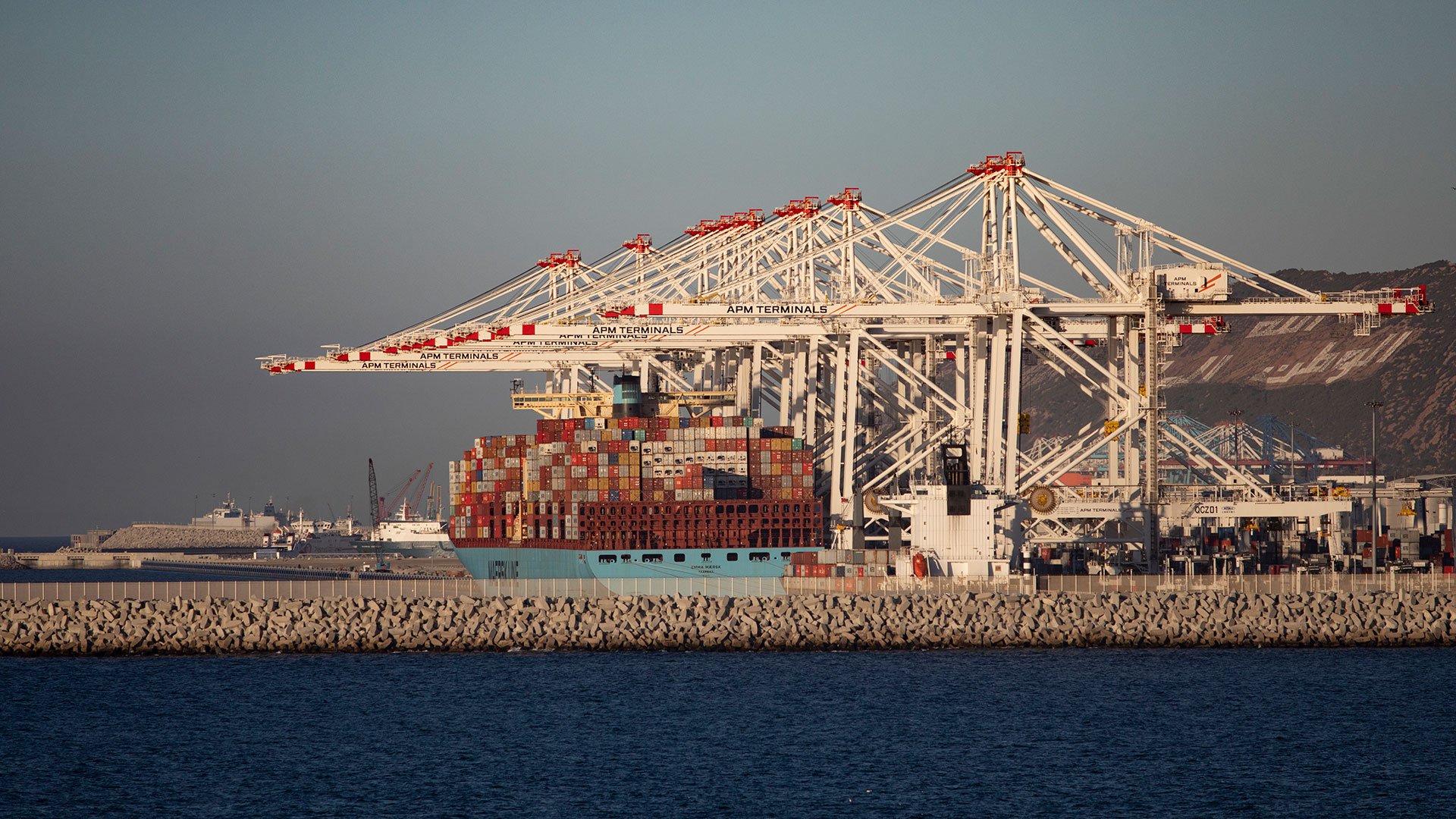
IMF-WTO Tariff Tracker
May 13, 2025
The IMF and the World Trade Organization (WTO) have joint efforts to monitor changes in applied tariff duties. This IMF-WTO tariff tracker aims to improve transparency regarding tariff actions due to their trade and macroeconomic implications. Continuously updated, the Tariff Tracker records initial levels and changes in effective applied duties, along with their implementation dates, at the bilateral and product levels. The dataset is accessible via the WTO Tariff & Trade Data platform.
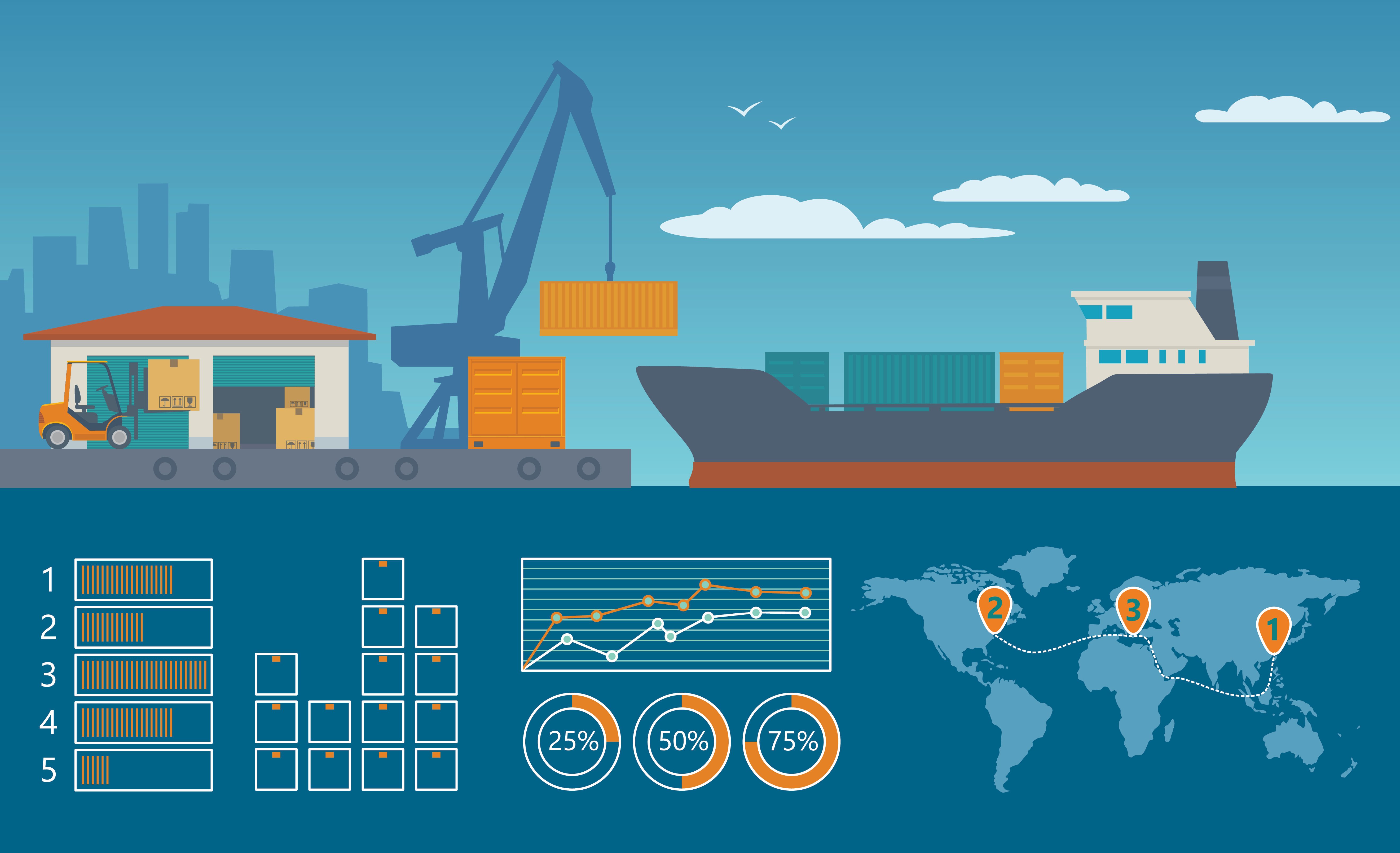
The State of Globalization
April 4-5, 2025, Tokyo
Globalization is rapidly changing due to technological change, the return of trade and industrial policy activism, and growing geopolitical tensions. This two-day conference—co-organized by the IMF and the Center for Advanced Research in Finance at the University of Tokyo—offered a platform to discuss the latest research insights and practical implications on the current state of globalization.
Review of the Role of Trade in the Work of the Fund
April 3, 2023
This paper outlines key changes in the global trade landscape in recent years, reviews the role of the Fund in this area, and outlines a trade strategy for the Fund going forward.Industrial Policies: Handle with Care
Industrial policies (IPs) are increasingly implemented, necessitating a reassessment of their benefits and costs. This study examines their economic and geopolitical drivers and their impact on targeted sectors. While IPs yield moderate and uneven economic gains, they are more effective when addressing highly-distorted upstream sectors with suitable tools. Structural reforms generally offer greater benefits and strengthen the link between IPs and economic performance. However, IPs may lead to significant fiscal costs and unintended spillovers, potentially accelerating economic fragmentation. Therefore, careful management of IPs is crucial.
Industrial Policy Coverage in IMF Surveillance— Broad Considerations
The paper aims to provide a conceptual framework and guiding principles for the coverage of Industrial Policy (IP) in IMF surveillance. It proposes a working definition of industrial policy, discusses its objectives and main instruments, and provides a brief review of academic literature on IP.
Industrial Policy: Trade Policy and World Trade Organization Considerations in IMF Surveillance
This note aims to support country teams with staff guidance, useful questions for engagement with national authorities, and resources on trade related aspects of industrial policies.
Geoeconomic Fragmentation: The Economic Risks from a Fractured World Economy
The world is facing the risk of fragmentation, with early signs taking root. The number of trade and foreign direct investment restrictions has increased three-fold since 2018. There is evidence that trade patterns are shifting, as firms respond to growing policy uncertainty and look for ways to insulate their supply chains from geopolitical risks. FDI is also increasingly concentrated among geopolitically aligned countries..
Fiscal Revenue Mobilization and Digitally Traded Products: Taxing at the Border or Behind It?
Digitalization has the potential to bring great economic benefits, but it is also creating new challenges. This note focuses on trade in digitized products, its fiscal revenue implications, and the appropriate role for domestic and border tax instruments in this context.
Review of the Role of Trade in the Work of the Fund
This paper outlines key changes in the global trade landscape in recent years, reviews the role of the Fund in this area, and outlines a trade strategy for the Fund going forward.
Shifting Advantages: Do Subsidies Shape Cross-Border Investment?
Industrial policies have been on the rise with subsidies provided to firms accounting for the lion’s share of interventions. The effects of these measures on productivity, trade, investment and other economic and non-economic variables are largely an open question. This paper examines empirically the link between subsidies and inward cross-border investment using data on greenfield investments across a large sample of advanced and emerging economies between 2010 and 2020. Employing a difference-in-difference approach, we find that—while the average effect of all subsidies is zero—financial subsidies, such as loans and loan guarantees, increase new cross-border investment projects by an average of 7%. These effects are primarily driven by capital-intensive sectors in capital-abundant countries, suggesting that subsidies can affect foreign direct investment—but they reinforce (rather than reshape) countries’ comparative advantage.
Trade Reform in Services: Structural Change and Production Networks
We study the effects of services trade reforms in a multi-country multi-sector quantitative trade model with input-output linkages. We find that (i) welfare gains from substantial services trade liberalization are large, around 3 percent on average; (ii) gains are larger by 0.7 percentage points in a hypothetical scenario where EMDEs’ consumption patterns have converged to AEs, and by 5.7 percentage points when their production networks have converged; (iii) both EMDEs and AEs gain from EMDEs reducing services barriers to the level of AEs. Services-intensive AEs with strong supply linkages to EMDEs benefit the most. Our results are important to illustrate the increasing gains from services trade as EMDEs continue on their development trajectory, and therefore call for injecting further ambition into multilateral negotiations on services trade reforms.
Trade Implications of China's Subsidies
Available data show a marked increase in subsidy utilization in China and in other major economies between 2009 and 2022. In this paper, we investigate the effects that China's subsidies have on international trade flows at the product level over this period.
Trade Spillovers of Domestic Subsidies
As governments resort to industrial policies to achieve economic and non-economic objectives, the number of subsidies implemented each year has more than tripled in the last decade. Using detailed data across a large number of advanced and emerging economies, we empirically investigate the effects of domestic subsidies on international trade flows.
The Return of Industrial Policy in Data
This paper introduces the New Industrial Policy Observatory (NIPO) dataset and documents emergent patterns of policy intervention during 2023 associated with the return of industrial policy.
Trading with Friends in Uncertain Times
In this paper we seek to answer the question of how the patterns of bilateral trade are altered by rising trade policy uncertainty (TPU).
Industrial Policies: Handle with Care
Industrial policies (IPs) are increasingly implemented, necessitating a reassessment of their benefits and costs. This study examines their economic and geopolitical drivers and their impact on targeted sectors. While IPs yield moderate and uneven economic gains, they are more effective when addressing highly-distorted upstream sectors with suitable tools. Structural reforms generally offer greater benefits and strengthen the link between IPs and economic performance. However, IPs may lead to significant fiscal costs and unintended spillovers, potentially accelerating economic fragmentation. Therefore, careful management of IPs is crucial.
Industrial Policy Coverage in IMF Surveillance— Broad Considerations
The paper aims to provide a conceptual framework and guiding principles for the coverage of Industrial Policy (IP) in IMF surveillance. It proposes a working definition of industrial policy, discusses its objectives and main instruments, and provides a brief review of academic literature on IP.
Industrial Policy: Trade Policy and World Trade Organization Considerations in IMF Surveillance
This note aims to support country teams with staff guidance, useful questions for engagement with national authorities, and resources on trade related aspects of industrial policies.
Geoeconomic Fragmentation: The Economic Risks from a Fractured World Economy
The world is facing the risk of fragmentation, with early signs taking root. The number of trade and foreign direct investment restrictions has increased three-fold since 2018. There is evidence that trade patterns are shifting, as firms respond to growing policy uncertainty and look for ways to insulate their supply chains from geopolitical risks. FDI is also increasingly concentrated among geopolitically aligned countries..
Fiscal Revenue Mobilization and Digitally Traded Products: Taxing at the Border or Behind It?
Digitalization has the potential to bring great economic benefits, but it is also creating new challenges. This note focuses on trade in digitized products, its fiscal revenue implications, and the appropriate role for domestic and border tax instruments in this context.
Review of the Role of Trade in the Work of the Fund
This paper outlines key changes in the global trade landscape in recent years, reviews the role of the Fund in this area, and outlines a trade strategy for the Fund going forward.
Shifting Advantages: Do Subsidies Shape Cross-Border Investment?
Industrial policies have been on the rise with subsidies provided to firms accounting for the lion’s share of interventions. The effects of these measures on productivity, trade, investment and other economic and non-economic variables are largely an open question. This paper examines empirically the link between subsidies and inward cross-border investment using data on greenfield investments across a large sample of advanced and emerging economies between 2010 and 2020. Employing a difference-in-difference approach, we find that—while the average effect of all subsidies is zero—financial subsidies, such as loans and loan guarantees, increase new cross-border investment projects by an average of 7%. These effects are primarily driven by capital-intensive sectors in capital-abundant countries, suggesting that subsidies can affect foreign direct investment—but they reinforce (rather than reshape) countries’ comparative advantage.
Trade Reform in Services: Structural Change and Production Networks
We study the effects of services trade reforms in a multi-country multi-sector quantitative trade model with input-output linkages. We find that (i) welfare gains from substantial services trade liberalization are large, around 3 percent on average; (ii) gains are larger by 0.7 percentage points in a hypothetical scenario where EMDEs’ consumption patterns have converged to AEs, and by 5.7 percentage points when their production networks have converged; (iii) both EMDEs and AEs gain from EMDEs reducing services barriers to the level of AEs. Services-intensive AEs with strong supply linkages to EMDEs benefit the most. Our results are important to illustrate the increasing gains from services trade as EMDEs continue on their development trajectory, and therefore call for injecting further ambition into multilateral negotiations on services trade reforms.
Trade Implications of China's Subsidies
Available data show a marked increase in subsidy utilization in China and in other major economies between 2009 and 2022. In this paper, we investigate the effects that China's subsidies have on international trade flows at the product level over this period.
Trade Spillovers of Domestic Subsidies
As governments resort to industrial policies to achieve economic and non-economic objectives, the number of subsidies implemented each year has more than tripled in the last decade. Using detailed data across a large number of advanced and emerging economies, we empirically investigate the effects of domestic subsidies on international trade flows.
The Return of Industrial Policy in Data
This paper introduces the New Industrial Policy Observatory (NIPO) dataset and documents emergent patterns of policy intervention during 2023 associated with the return of industrial policy.
Trading with Friends in Uncertain Times
In this paper we seek to answer the question of how the patterns of bilateral trade are altered by rising trade policy uncertainty (TPU).
9th Annual IMF/World Bank/WTO Trade Research Conference
This conference discusses geopolitical tensions, carbon pricing, services, trade patterns, development, and climate change, as well as a policy panel with chief economists from each institution on industrial policy and the role of international organizations.
Subsidies: why do we care, what do we know, and what next?
Joint webinar hosted by the OECD on July 26, following the release of the new Joint Subsidies Platform by the IMF, World Bank Group, WTO, and OECD. Video: Courtesy of the OECD.
IMF Conference on Geoeconomic Fragmentation
With the world facing the risk of policy-driven geoeconomic fragmentation, this one-day conference brings together leading scholars and policymakers to discuss the potential economic consequences of geoeconomic fragmentation, focusing on its effects on trade and capital flows, firms’ production networks, and technology diffusion.
Workshop | Opening Remarks by Gita Gopinath
Trade Integration in Africa – Unleashing the Continent’s Potential in a Changing World
Launch event in Nairobi, Kenya, for new IMF paper which highlights the potential benefits of the African Continental Free Trade Area for the continent, and the policies and reforms needed to achieve them.
PortWatch—Monitoring Disaster-Related Trade Disruptions from Space
A workshop at the 2023 Spring Meetings. The PortWatch project uses satellite-based vessel data and big data analytics to monitor trade disruptions from natural disasters. It allows users to monitor local and global spillovers from natural disasters by leveraging insights on the international trade network.
Watch replay here.
Preserving Open Trade: Subsidies, Geopolitics, and International Cooperation
Joint IMF-World Bank-WTO-OECD Panel Discussion hosted by the World Bank Group during the 2022 IMF-WBG Spring Meetings.
Watch replay here: https://youtu.be/2673uI2YxOo (Video: Courtesy of the World Bank Group)
9th Annual IMF/World Bank/WTO Trade Research Conference
This conference discusses geopolitical tensions, carbon pricing, services, trade patterns, development, and climate change, as well as a policy panel with chief economists from each institution on industrial policy and the role of international organizations.
Subsidies: why do we care, what do we know, and what next?
Joint webinar hosted by the OECD on July 26, following the release of the new Joint Subsidies Platform by the IMF, World Bank Group, WTO, and OECD. Video: Courtesy of the OECD.
IMF Conference on Geoeconomic Fragmentation
With the world facing the risk of policy-driven geoeconomic fragmentation, this one-day conference brings together leading scholars and policymakers to discuss the potential economic consequences of geoeconomic fragmentation, focusing on its effects on trade and capital flows, firms’ production networks, and technology diffusion.
Workshop | Opening Remarks by Gita Gopinath
Trade Integration in Africa – Unleashing the Continent’s Potential in a Changing World
Launch event in Nairobi, Kenya, for new IMF paper which highlights the potential benefits of the African Continental Free Trade Area for the continent, and the policies and reforms needed to achieve them.
PortWatch—Monitoring Disaster-Related Trade Disruptions from Space
A workshop at the 2023 Spring Meetings. The PortWatch project uses satellite-based vessel data and big data analytics to monitor trade disruptions from natural disasters. It allows users to monitor local and global spillovers from natural disasters by leveraging insights on the international trade network.
Watch replay here.
Preserving Open Trade: Subsidies, Geopolitics, and International Cooperation
Joint IMF-World Bank-WTO-OECD Panel Discussion hosted by the World Bank Group during the 2022 IMF-WBG Spring Meetings.
Watch replay here: https://youtu.be/2673uI2YxOo (Video: Courtesy of the World Bank Group)
The Debt Reckoning: Rodrigo Valdés and Era Dabla-Norris
Unprecedented debt levels are pressing governments to make tough choices. While aging populations demand more public spending, resources are stretched thin, and the days of cheap borrowing are behind us. In this podcast, the IMF's Rodrigo Valdés and Era Dabla-Norris say the erosion of public trust is a factor in reconciling competing fiscal priorities.
Johan Norberg on What Makes and Breaks Golden Eras
The most prosperous of civilizations were the most open. The Romans, for example, expanded their empire by integrating the populations they conquered, creating a melting pot of new ideas. Johan Norberg’s latest book, Peak Human, examines the rise and fall of seven golden age civilizations. In this podcast, he says that if openness to learning and trade are what great societies make, building walls to protect their dominance often sparks their demise.
Enrico Letta: Harnessing Europe's Single Market
The idea of European integration through a single market was to capitalize on the EU as a whole. However, EU member states now appear reticent to pool sovereignty to the degree required to counter the geopolitical challenges of today’s world. Enrico Letta is President of the Jacques Delors Institute and a champion of Delors’ vision of creating a fully integrated European economic space. Letta says the adaptation of the single market should include all sectors rather than a select few and that fragmentation is holding Europe back.

The Subsidy Platform is a joint effort by the staff of the IMF, OECD, World Bank Group, and WTO. Its purpose is to increase transparency on the use of subsidies across economies and sectors and to serve as a “one-stop shop” for information and analysis on subsidies respectively maintained by these organizations. Each organization uses its own definition, methodology, and coverage for the information it maintains. Thus, users of the portal should take note of those differences when using data and information from each organization.
The Subsidy Platform serves as a portal and redirects users to data and information that is separately hosted on the four institutions’ websites. Users should abide by the disclaimers, copyright and usage procedures, and citation information on the individual institutions’ sites, platforms, and databases. The joint hosting of the Subsidy Platform does not constitute an endorsement by the members of any of the four organizations of particular information accessible through this site.
Read more in the press release >
IMF | OECD | The World Bank | World Trade Organization
PORTWATCH
The PortWatch project uses satellite-based vessel data and big data analytics to monitor trade disruptions from natural disasters. The PortWatch portal allows users to monitor local and global spillovers from natural disasters by leveraging insights on the international trade network.
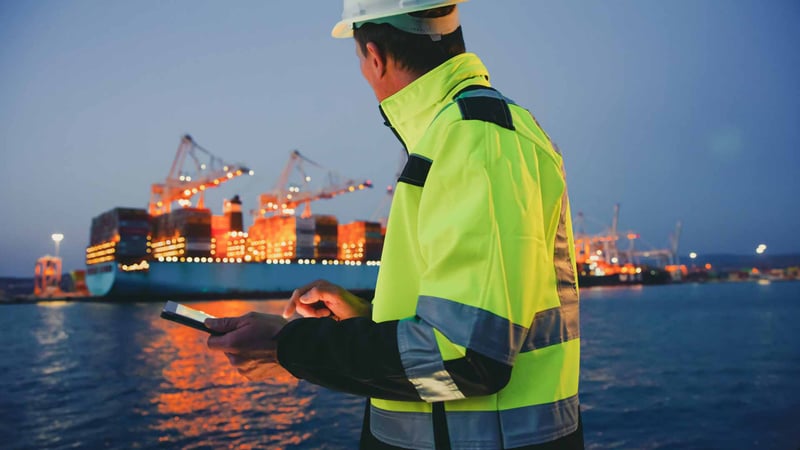
Learn more here:
Launch of the PortWatch Platform: Monitoring Trade Disruptions from Space >
Analytical Corner: Tracking Trade Disruptions from Space >
IMF-WTO Tariff Tracker
The International Monetary Fund (IMF) and the World Trade Organization (WTO) have joint efforts to monitor changes in applied tariff duties.
This IMF-WTO tariff tracker aims to improve transparency regarding tariff actions due to their trade and macroeconomic implications. The Tariff Tracker records initial levels and changes in effective applied duties, along with their implementation dates, at the bilateral and product levels. The dataset initially focuses on the policies of the largest trading countries and will eventually be extended. It covers all trading partners of these countries and all products at the chapter level of the Harmonized System.
Continuously updated, this dataset consolidates information from various sources, including WTO notifications, the WTO Trade Monitoring Database, and external media, in collaboration with the IMF. To meet the high demand for this information, the dataset is accessible via the WTO Tariff & Trade Data platform, enhancing transparency and supporting informed decision-making in the international trading community.
Tariff & Trade Data >
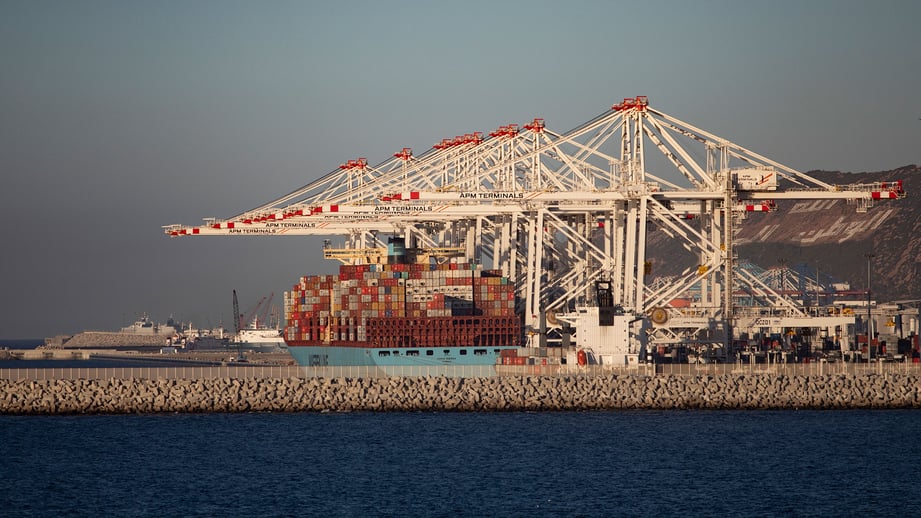

The Subsidy Platform is a joint effort by the staff of the IMF, OECD, World Bank Group, and WTO. Its purpose is to increase transparency on the use of subsidies across economies and sectors and to serve as a “one-stop shop” for information and analysis on subsidies respectively maintained by these organizations. Each organization uses its own definition, methodology, and coverage for the information it maintains. Thus, users of the portal should take note of those differences when using data and information from each organization.
The Subsidy Platform serves as a portal and redirects users to data and information that is separately hosted on the four institutions’ websites. Users should abide by the disclaimers, copyright and usage procedures, and citation information on the individual institutions’ sites, platforms, and databases. The joint hosting of the Subsidy Platform does not constitute an endorsement by the members of any of the four organizations of particular information accessible through this site.
Read more in the press release >
IMF | OECD | The World Bank | World Trade Organization
PORTWATCH
The PortWatch project uses satellite-based vessel data and big data analytics to monitor trade disruptions from natural disasters. The PortWatch portal allows users to monitor local and global spillovers from natural disasters by leveraging insights on the international trade network.

Learn more here:
Launch of the PortWatch Platform: Monitoring Trade Disruptions from Space >
Analytical Corner: Tracking Trade Disruptions from Space >
IMF-WTO Tariff Tracker
The International Monetary Fund (IMF) and the World Trade Organization (WTO) have joint efforts to monitor changes in applied tariff duties.
This IMF-WTO tariff tracker aims to improve transparency regarding tariff actions due to their trade and macroeconomic implications. The Tariff Tracker records initial levels and changes in effective applied duties, along with their implementation dates, at the bilateral and product levels. The dataset initially focuses on the policies of the largest trading countries and will eventually be extended. It covers all trading partners of these countries and all products at the chapter level of the Harmonized System.
Continuously updated, this dataset consolidates information from various sources, including WTO notifications, the WTO Trade Monitoring Database, and external media, in collaboration with the IMF. To meet the high demand for this information, the dataset is accessible via the WTO Tariff & Trade Data platform, enhancing transparency and supporting informed decision-making in the international trading community.
Tariff & Trade Data >

Joint Statements
- Second Joint Statement by the Heads of Food and Agricultural Organization, International Monetary Fund, World Bank Group, World Food Programme, and World Trade Organization on the Global Food Security and Nutrition Crisis, September 21, 2022
- Joint Statement: The Heads of the Food and Agriculture Organization, International Monetary Fund, World Bank Group, World Food Programme, and World Trade Organization on the Global Food Security Crisis, July 15, 2022
- Joint Statement: The Heads of the World Bank Group, IMF, WFP and WTO Call for Urgent Coordinated Action on Food Security, April 13, 2022
- WTO and IMF Joint Statement on Trade and the COVID-19 Response, April 24, 2020



